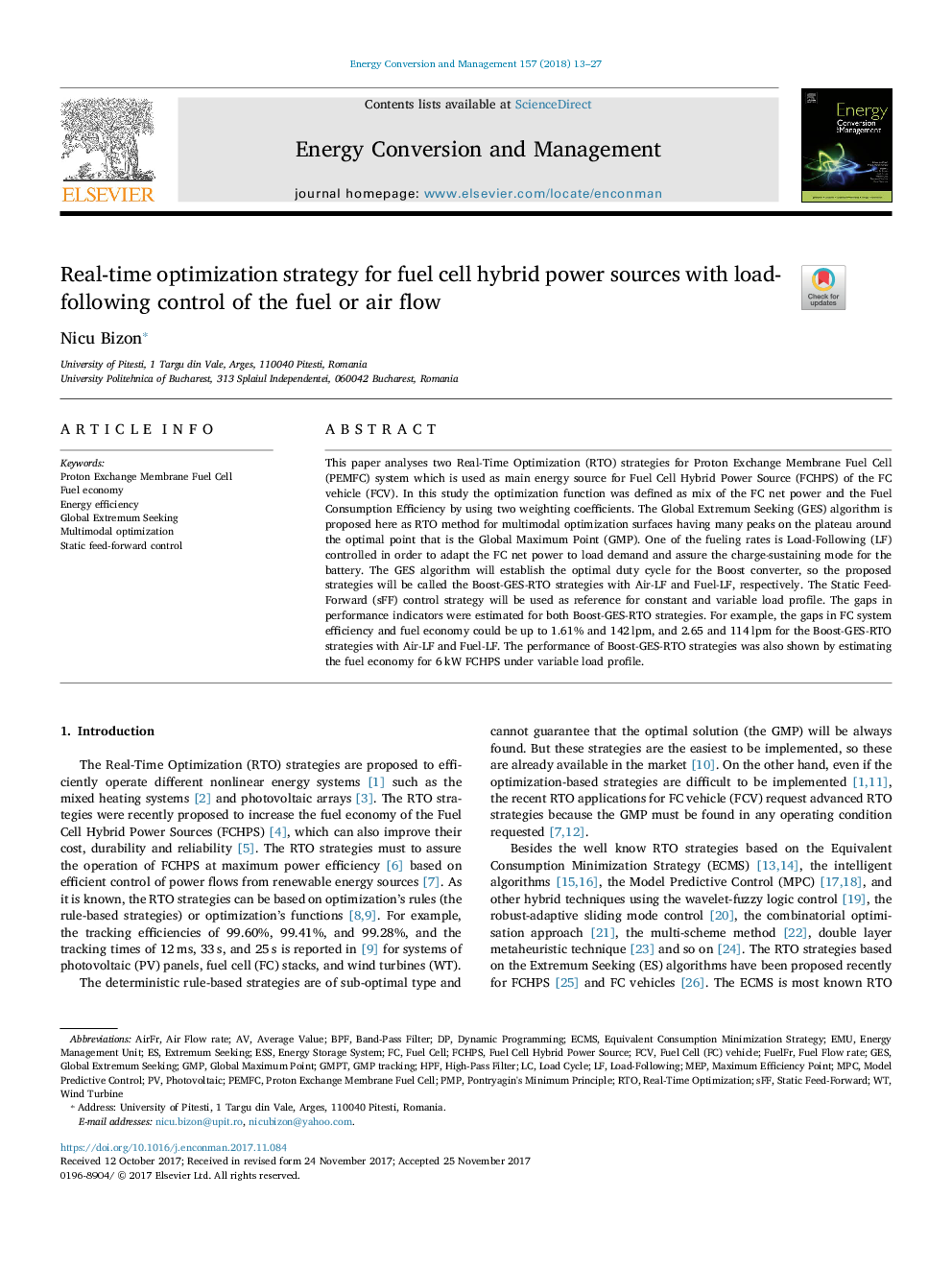ترجمه فارسی عنوان مقاله
استراتژی بهینه سازی در زمان واقعی برای منابع قدرت هیبرید سلولی با کنترل بار بر کنترل جریان سوخت یا هوا
عنوان انگلیسی
Real-time optimization strategy for fuel cell hybrid power sources with load-following control of the fuel or air flow
| کد مقاله | سال انتشار | تعداد صفحات مقاله انگلیسی |
|---|---|---|
| 138792 | 2018 | 15 صفحه PDF |
منبع

Publisher : Elsevier - Science Direct (الزویر - ساینس دایرکت)
Journal : Energy Conversion and Management, Volume 157, 1 February 2018, Pages 13-27

